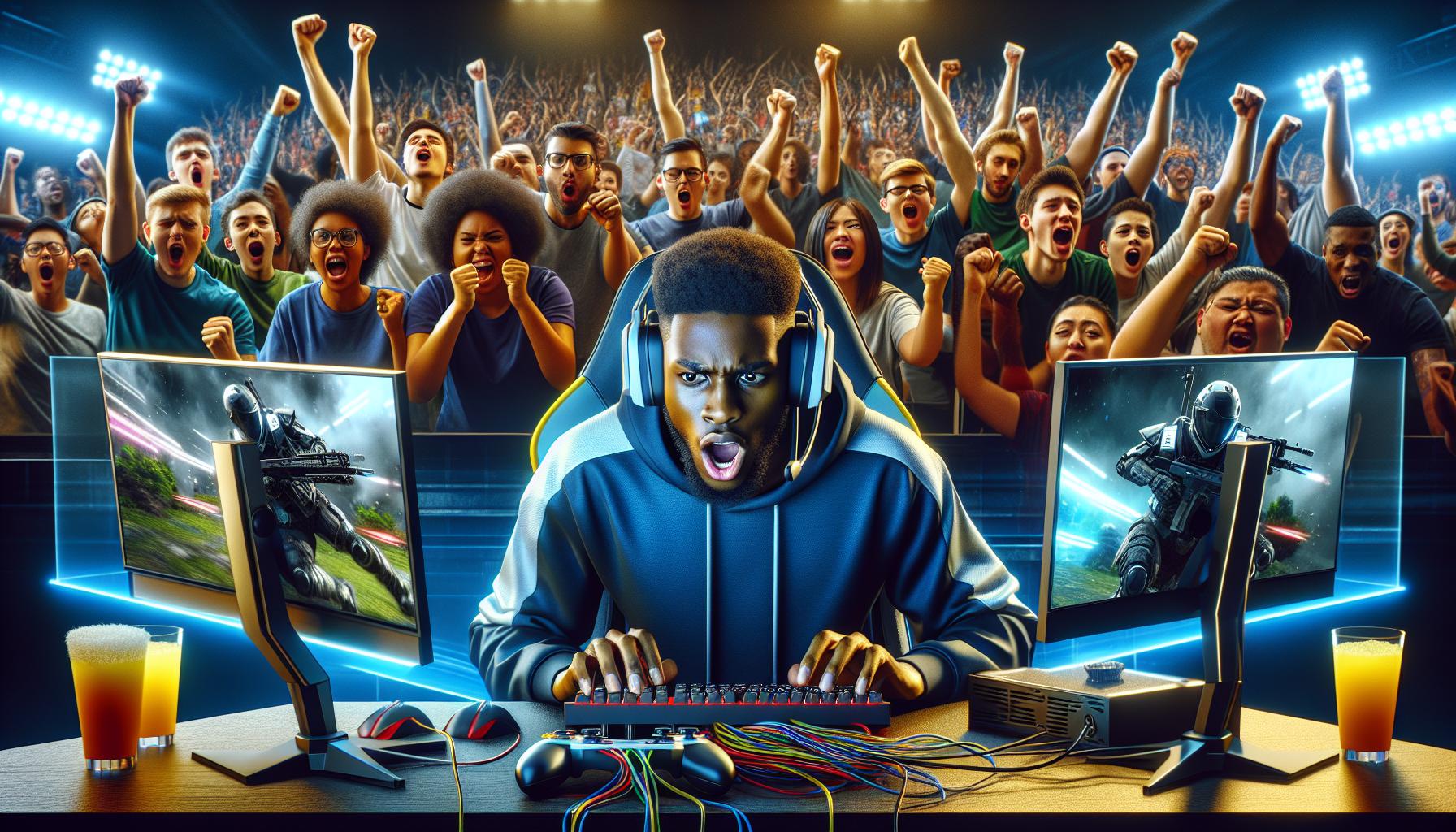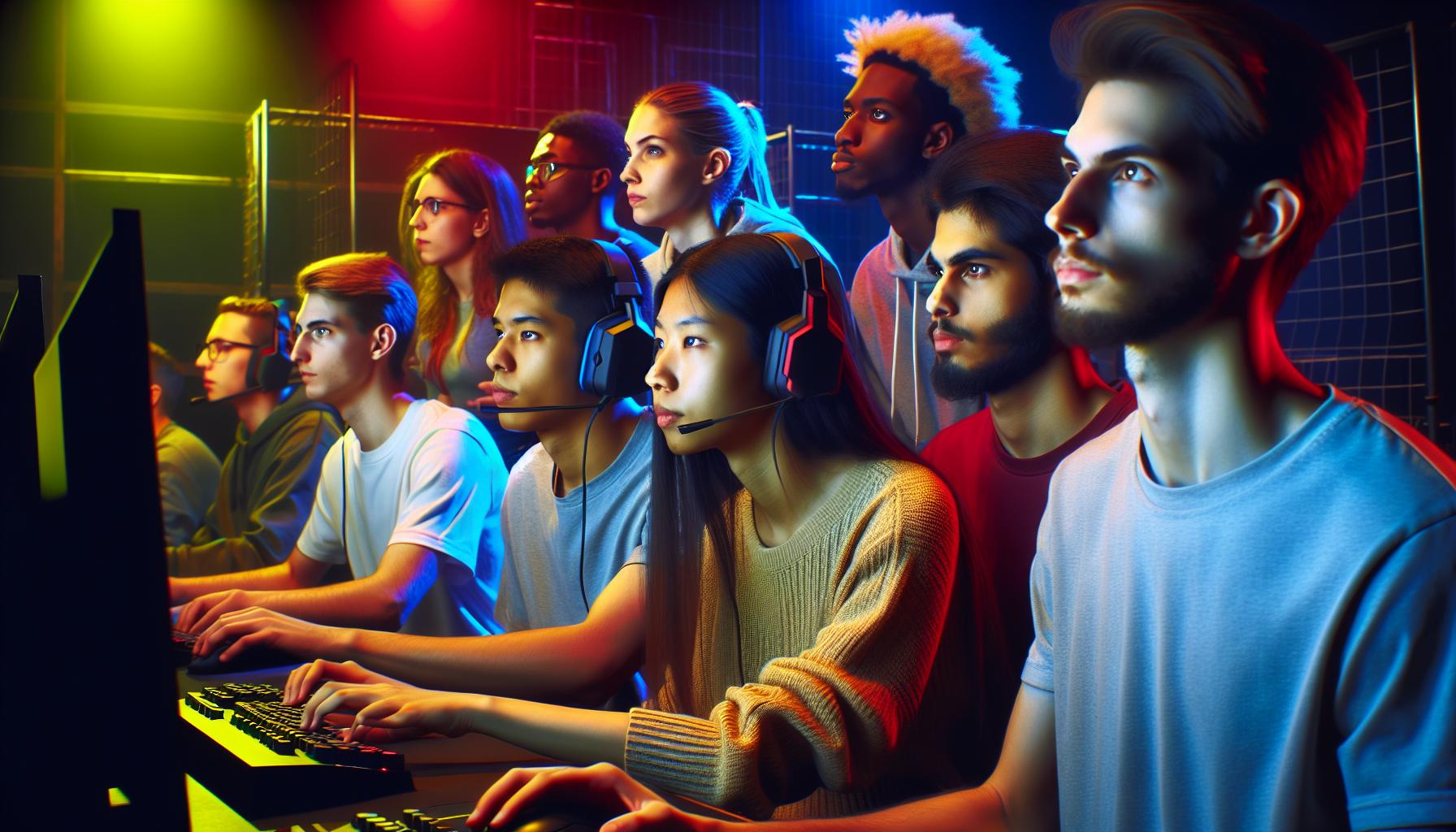The world of sports is evolving, and eSports is at the forefront of this transformation. With millions of fans and players globally, competitive gaming has captured the attention of traditional sports enthusiasts and newcomers alike. As technology and entertainment converge, the question arises: should eSports be included in the Olympics?
Integrating eSports into the Olympic Games could redefine the event’s landscape, attracting a younger audience while showcasing the incredible skill and strategy involved in competitive gaming. As discussions around this topic gain momentum, it’s essential to explore the implications, challenges, and potential benefits of making eSports an official Olympic sport.
Key Takeaways
- Definition and History: eSports refers to organized, multiplayer video game competitions with a rich history dating back to the 1970s, evolving into a global phenomenon with significant audience engagement and sponsorships.
- Growing Popularity: The eSports audience is projected to reach approximately 600 million in 2023, with revenues surpassing $1.1 billion in 2022, highlighting its market potential and cultural relevance.
- Skill and Athleticism: Professional gamers exhibit skills like strategic thinking, hand-eye coordination, and mental acuity, reflecting a level of dedication similar to that of traditional athletes.
- Challenges to Inclusion: The integration of eSports into the Olympics faces hurdles, including skepticism from traditional sports organizations, concerns over youth engagement, and ongoing debates about the definition of “sport.”
- Future Possibilities: The International Olympic Committee is open to including eSports in future Olympic events, potentially starting with demonstration sports to evaluate their compatibility with Olympic values.
- Notable Competitions: Major eSports events like “The International” and “League of Legends World Championship” showcase the discipline’s legitimacy and skill, bridging the gap between traditional and digital sports.
E Sports in Olympics
The potential inclusion of eSports in the Olympics signals a transformative moment in competitive gaming. Key aspects include understanding its definition and the historical context of eSports in competitions.
Definition of E Sports
E Sports refers to organized, multiplayer video game competitions, often between professional players and teams. Various genres such as first-person shooters, real-time strategy games, and sports simulations fall under this umbrella. Popular titles include “League of Legends,” “Dota 2,” and “Counter-Strike.” Major events often feature large arenas, prize pools reaching millions, and attract substantial online viewership, demonstrating eSports’ legitimacy as a competitive discipline.
Brief History of E Sports in Competitions
The history of eSports in competitions dates back to the 1970s with early arcade contests. The “Space Invaders Championship” in 1980 marked one of the first large-scale tournaments, engaging thousands of players. By the mid-1990s, games like “Quake” and “StarCraft” established competitive formats, leading to organized leagues and tournaments globally. The early 2000s saw the rise of professional teams, and by the 2010s, major sponsorships and live streaming propelled eSports into the mainstream. Events such as “The International” and “World Championship Series” now draw massive crowds and significant media attention.
The Case for E Sports in Olympics

The inclusion of eSports in the Olympics presents various compelling arguments. Significant aspects include the genre’s popularity and the skills required for competition.
Popularity and Growth of E Sports
E sports boasts a massive and rapidly growing global audience. In 2023, the projected audience for eSports is approximately 600 million, showcasing its appeal across various demographics. Major tournaments attract millions of viewers on platforms like Twitch and YouTube, setting viewing records comparable to traditional sporting events. The revenue generated by eSports exceeded $1.1 billion in 2022, fueled by sponsorships, advertising, and merchandise sales. These figures illustrate eSports’ market potential and cultural significance, making it a viable candidate for Olympic status.
Skills and Athleticism in E Sports
E sports requires exceptional skills and mental acuity, paralleling traditional sports. Competitors exhibit hand-eye coordination, strategic thinking, and quick reflexes under pressure. Elite players often undergo rigorous training regimens, practicing for 10 to 12 hours daily. The level of dedication to mastering complex game mechanics mirrors that of athletes in physical sports. Furthermore, organizations increasingly recognize eSports as an avenue for talent development, emphasizing teamwork, communication, and adaptability. The skills inherent in competitive gaming validate the argument for its inclusion in the Olympics as a legitimate sport.
Challenges and Controversies

The integration of eSports into the Olympic framework presents several challenges and controversies that warrant examination. These challenges arise from various stakeholders, including traditional sports authorities, parents, and the wider community.
Acceptance of E Sports by Traditional Sports Bodies
Acceptance of eSports by traditional sports bodies poses significant hurdles. Many governing organizations, including the International Olympic Committee (IOC), exhibit hesitance in recognizing eSports as a legitimate sport. Concerns stem from the absence of standardized governing bodies, along with differing regional regulations. Furthermore, the inherent differences in physical activity levels between eSports and traditional sports often ignite debates about what constitutes “sport.” Examples of traditional sports associations’ reluctance include the lack of endorsement for eSports tournaments as Olympic qualifying events, with several sports organizations remaining undefined about their recognition of competitive gaming as a sport.
Concerns Over Youth Engagement and Screen Time
Concerns regarding youth engagement and screen time complicate discussions about eSports in the Olympics. Critics argue that increased exposure to competitive gaming may exacerbate sedentary lifestyles among young people. The American Academy of Pediatrics suggests that excessive screen time can lead to negative health outcomes, including obesity and mental health issues. For instance, reports indicate a potential correlation between gaming and decreased physical activity in adolescents. Advocates for traditional sports emphasize the necessity of promoting physical health, fearing that prioritizing eSports may undermine these values. As discussions about eSports continue, striking a balance between promoting gaming and encouraging physical activity remains imperative.
Current Status of E Sports in Olympic Games

E sports are gradually making strides toward potential inclusion in Olympic events, generating discussions among stakeholders and sports organizations. The ongoing dialogue emphasizes the relevance of eSports in the context of modern athletic competition.
Inclusion in Future Olympic Events
The International Olympic Committee (IOC) acknowledges the rise of eSports, showing openness to its integration into future Olympic programs. This willingness aligns with efforts to engage younger audiences and adapt to evolving entertainment landscapes. Possible pathways for inclusion may involve showcasing eSports as a demonstration sport, providing a platform for popular titles while assessing their compatibility with Olympic values. The decision-making process encompasses thorough evaluations of competitive structures, athlete involvement, and alignment with traditional sports principles.
Examples of E Sports Competitions
Several high-profile eSports competitions illustrate the growing prominence of the discipline:
- The International: This annual Dota 2 tournament boasts significant prize pools, often exceeding $40 million, attracting millions of viewers and participants worldwide.
- League of Legends World Championship: This event garners millions of viewers, featuring top teams competing for a multi-million dollar prize while celebrating strategic and skill-based gameplay.
- CS:GO Major Championships: These competitions showcase elite teams in Counter-Strike: Global Offensive, featuring intense matches in front of live audiences and considerable online viewership.
- Fortnite World Cup: With a prize pool of $30 million, this competition brought together skilled players, highlighting the game’s competitive spirit and widespread appeal.
These examples reflect the legitimacy and athleticism found in eSports, bridging the gap between traditional and digital sports.
Sports Landscape
The potential inclusion of eSports in the Olympic Games represents a significant shift in the sports landscape. With its vast audience and dedicated player base, eSports can engage younger generations and redefine what it means to be an athlete. As discussions evolve, stakeholders must navigate the challenges while recognizing the skill and dedication required in competitive gaming.
The journey toward Olympic recognition may be complex but the growing legitimacy of eSports cannot be overlooked. Embracing this new frontier could not only enhance the Olympic experience but also foster a deeper connection between traditional sports and the digital realm. As the dialogue continues, the future of eSports in the Olympics holds exciting possibilities.